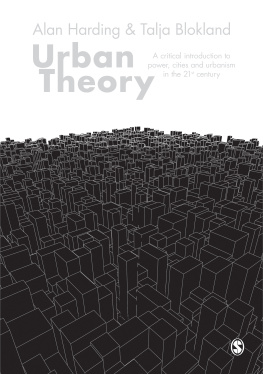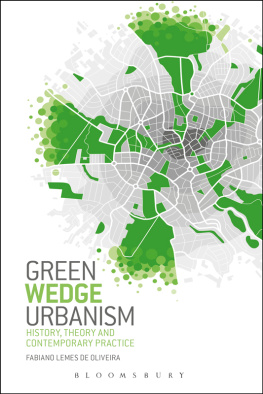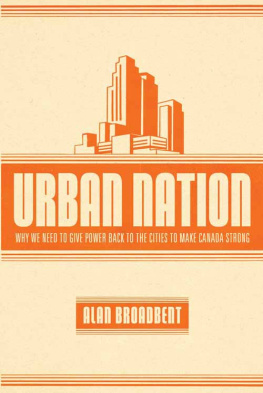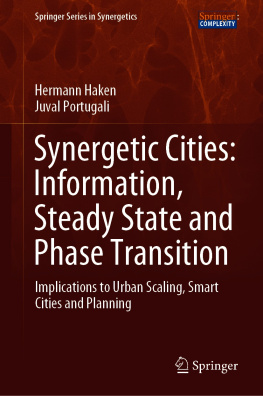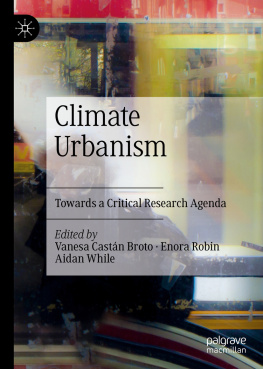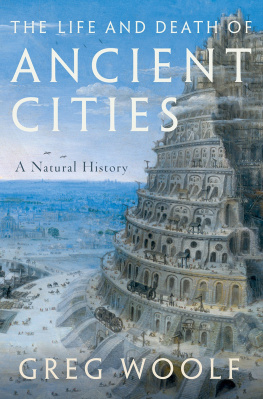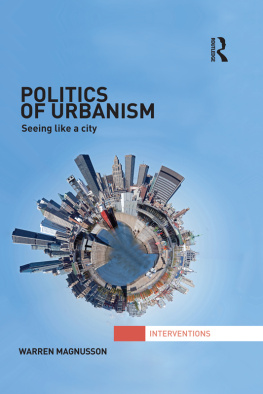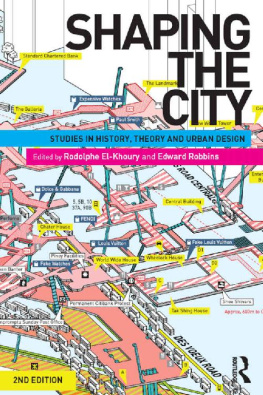Alan Harding - Urban Theory: A Critical Introduction to Power, Cities and Urbanism in the 21st Century
Here you can read online Alan Harding - Urban Theory: A Critical Introduction to Power, Cities and Urbanism in the 21st Century full text of the book (entire story) in english for free. Download pdf and epub, get meaning, cover and reviews about this ebook. genre: Politics. Description of the work, (preface) as well as reviews are available. Best literature library LitArk.com created for fans of good reading and offers a wide selection of genres:
Romance novel
Science fiction
Adventure
Detective
Science
History
Home and family
Prose
Art
Politics
Computer
Non-fiction
Religion
Business
Children
Humor
Choose a favorite category and find really read worthwhile books. Enjoy immersion in the world of imagination, feel the emotions of the characters or learn something new for yourself, make an fascinating discovery.
- Book:Urban Theory: A Critical Introduction to Power, Cities and Urbanism in the 21st Century
- Author:
- Genre:
- Rating:5 / 5
- Favourites:Add to favourites
- Your mark:
- 100
- 1
- 2
- 3
- 4
- 5
Urban Theory: A Critical Introduction to Power, Cities and Urbanism in the 21st Century: summary, description and annotation
We offer to read an annotation, description, summary or preface (depends on what the author of the book "Urban Theory: A Critical Introduction to Power, Cities and Urbanism in the 21st Century" wrote himself). If you haven't found the necessary information about the book — write in the comments, we will try to find it.
Alan Harding: author's other books
Who wrote Urban Theory: A Critical Introduction to Power, Cities and Urbanism in the 21st Century? Find out the surname, the name of the author of the book and a list of all author's works by series.
Urban Theory: A Critical Introduction to Power, Cities and Urbanism in the 21st Century — read online for free the complete book (whole text) full work
Below is the text of the book, divided by pages. System saving the place of the last page read, allows you to conveniently read the book "Urban Theory: A Critical Introduction to Power, Cities and Urbanism in the 21st Century" online for free, without having to search again every time where you left off. Put a bookmark, and you can go to the page where you finished reading at any time.
Font size:
Interval:
Bookmark:
Just when we need it most, urban theory seems to be failing us. This book explains why we need it.
Jamie Peck
University of British Columbia
Harding and Blokland address the vaunted crisis in urban theory with a thoughtful assessment of extant theories in terms of performance, commensurability, and critical engagement. In a conversational and lively tone, they view theories of inequality, public space, identity, power, agency, and culture through the lens of relaxed urban theory. Excellent overview for scholars and engaging classroom material.
Susan E. Clarke
University of Colorado
Inspired by Peter Saunderss non-spatial urban thinking, Harding and Bloklands book provides a provocative, wide-ranging and comprehensive treatment of concepts geared to understand cities, and is a compulsory addition to any urban students intellectual arsenal in a period of renewed interest in urban theory.
Roger Keil
York University
Urban theory is said to be in a mess. Proceeding with great analytical clarity, this book introduces a relaxed definition of urban theory that enables the reader to make sense of the non-linear, variegated world of urban theory as it has developed over time and through the application of different disciplines, methods and epistemologies. In reviewing all the major conceptualisations of urban theory, Harding and Blokland provide clear insights into recent developments and the controversies and critiques they have provoked. The book is a pedagogical tour de force for students and scholars alike.
Patrick Le Gals
CNRS Research Professor at Sciences Pos Centre dtudes Europennes and Professor at Sciences Po,(Paris)
A critical introduction to power, cities and urbanism in the 21st century
- Alan Harding
- Talja Blokland
Other

SAGE
- Los Angeles
- London
- New Delhi
- Singapore
- Washington DC

SAGE Publications Ltd
1 Olivers Yard
55 City Road
London EC1Y 1SP
SAGE Publications Inc.
2455 Teller Road
Thousand Oaks, California 91320
SAGE Publications India Pvt Ltd
B 1/I 1 Mohan Cooperative Industrial Area
Mathura Road
New Delhi 110 044
SAGE Publications Asia-Pacific Pte Ltd
3 Church Street
#10-04 Samsung Hub
Singapore 049483
Alan Harding and Talja Blokland 2014
First published 2014
Apart from any fair dealing for the purposes of research or private study, or criticism or review, as permitted under the Copyright, Designs and Patents Act, 1988, this publication may be reproduced, stored or transmitted in any form, or by any means, only with the prior permission in writing of the publishers, or in the case of reprographic reproduction, in accordance with the terms of licences issued by the Copyright Licensing Agency. Enquiries concerning reproduction outside those terms should be sent to the publishers.
Library of Congress Control Number: 2013951657
British Library Cataloguing in Publication data
A catalogue record for this book is available from the British Library
ISBN 978-1-4462-9451-2
ISBN 978-1-4462-9452-9 (pbk)
Editor: Robert Rojek
Editorial assistant: Keri Dickens
Production editor: Katherine Haw
Copyeditor: Richard Leigh
Proofreader: Dick Davis
Marketing manager: Michael Ainsley
Cover design: Francis Kenney
Typeset by: C&M Digitals (P) Ltd, Chennai, India
Printed and bound by CPI Group (UK) Ltd, Croydon, CR0 4YY

For Jack, Jonah, Kim, Martha and Sam
And in memory of a wet Whalley Range
This book provides an introduction to urban theory for an audience that does not necessarily have any prior knowledge about this interesting but ill-defined and, some would say, controversial area of academic study. It has been a long time in the making. One of the co-authors started it over a decade ago, when he was fortunate enough to be awarded a UK Economic and Social Research Council (ESRC) Professorial Fellowship that, ideally, should have been enough to see the job through. Unfortunately, at the same time, he assumed additional responsibilities for building up a self-funding research centre at Salford University. Times were relatively good. Research funding was plentiful. The book therefore remained half, rather than fully, written at the end of that award. These things happen. The end-of-award report was less enthusiastic than it might have been, but nobody died.
There followed a frustrating few years, book-wise, during which time this same co-author moved to the University of Manchester to head up another self-funding research institute. Times were hard. A combination of global financial crisis and intermittent national (UK) economic recessions saw the virtual disappearance of the sorts of soft (sic) money that has been known to make such a job tolerable. Sometime in 2010, however, this co-author, approaching his wits end about how this book would ever be finished, had a brainwave. He invited his fellow co-author to join him and contribute strands of analysis that he would have been incapable of formulating, far less providing, alone. This co-author had been teaching urban theory classes for a couple of years and was dissatisfied with the textbooks available, yet knew she would never have the competence or the motivation to do anything about this unaided. She therefore welcomed the offer to board this train. But then her life, too, changed. Amongst other things, she became Head of Department and spent much time acquiring the bureaucratic skills needed within a German university. Further delay was inevitable. Nonetheless, three years on, various life-changing events to both participants and too many sleepless nights later, here it is.
In writing the book, we have set ourselves the objectives to inform, to challenge and to make complex ideas accessible. A rapidly changing world brings with it a rapid turnover of ideas. The task of staying abreast of contemporary changes is made that much easier if the reader does not have to track each of them from countless individual sources; a journal article here, a book chapter there. The first challenge we took on, therefore, was to identify, assemble, and describe the body of work that best captures the evolution of urban theory, historically, with a particular focus on the most important contributions, as we see them, that appeared either side of the millennium.
Font size:
Interval:
Bookmark:
Similar books «Urban Theory: A Critical Introduction to Power, Cities and Urbanism in the 21st Century»
Look at similar books to Urban Theory: A Critical Introduction to Power, Cities and Urbanism in the 21st Century. We have selected literature similar in name and meaning in the hope of providing readers with more options to find new, interesting, not yet read works.
Discussion, reviews of the book Urban Theory: A Critical Introduction to Power, Cities and Urbanism in the 21st Century and just readers' own opinions. Leave your comments, write what you think about the work, its meaning or the main characters. Specify what exactly you liked and what you didn't like, and why you think so.

